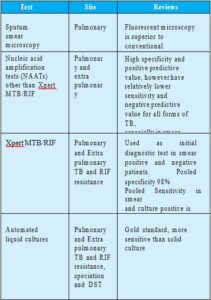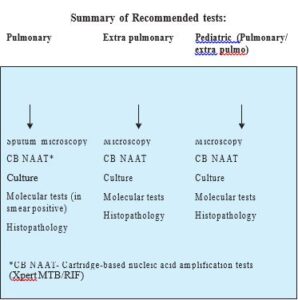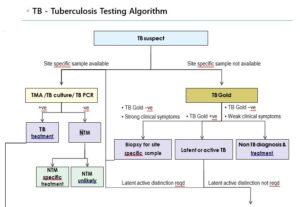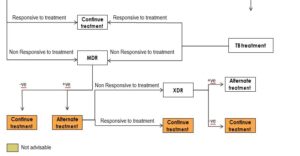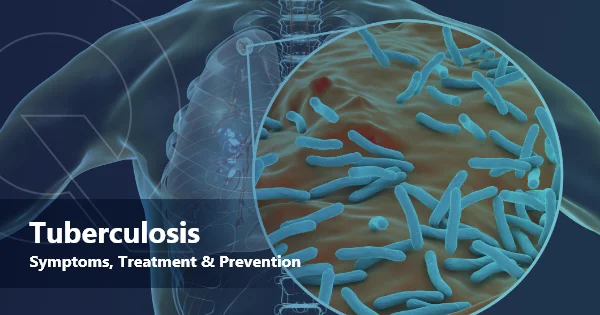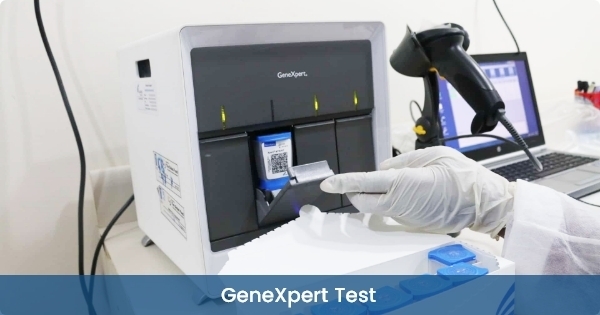Dr Monika Agarwal, M.B.B.S., M.D., (Microbiology), Consultant Medical Microbiology, Oncquest Laboratories Ltd, New Delhi.
India, the world’s most populous country accounts for a quarter of the world’s annual incidence of TB. Every year approximately two million people develop TB in India and 300,000 die of TB i.e. 2 deaths every 3 minutes. Over 15 million patients have been treated and 3 million additional lives have been saved by the Revised National TB Control Programme (RNTCP) over the last decade.

However, despite a comprehensive national TB control program that provides Guidelines for implementation of TB diagnosis and treatment, there is still a long way to go and the emergence of drug-resistant TB has become a major public health concern.
There are many challenges for TB control in India. Prompt, accurate diagnosis and effective treatment of TB are not only essential for good patient care but also the cornerstone of any initiative for tuberculosis control.
The need for quality and standards for TB care including diagnosis and treatment is made necessary where a largely unregulated and unmonitored private sector accounts for almost half of the TB care delivered in India. Thus, it was felt essential to develop and disseminate the standards of TB care that is particularly relevant in Indian context, acceptable to the medical fraternity in both the public and private sector in India.
There are total 21 standards in International standards for tuberculosis care (ISTC) and 26 In Standards for TB care in India (SCTI)
- Standards 1-6 describes the standards for TB diagnosis
- Standard 7-13 describes the standards for TB Treatment
- Rest other, for addressing HIV infection and other co- morbid conditions and public health and prev
To ensure early diagnosis, providers must be aware of risk factors for TB and perform prompt clinical evaluation and appropriate diagnostic testing.
Clinical diagnosis and screening :
- Any person with symptoms and signs suggestive of TB including cough >2 weeks, fever >2 weeks, significant weight loss, haemoptysis etc. and any abnormality in chest radiograph and Children with persistent fever and/or cough >2 weeks, loss of weight / no weight gain, and/or contact with pulmonary TB cases must be evaluated for TB.
- People living with HIV (PLHIV), malnourished, diabetics, cancer patients, patients on immunosuppressant or maintenance steroid therapy, should be regularly screened for signs and symptoms suggestive of TB.
- All TB positive patients should be screened for HIV also.
Laboratory Diagnosis:
- Chest X-ray should be used as a screening tool where available to increase the sensitivity of the diagnosis in conjunction with laboratory diagnosis. Although sensitivity is high but specificity is low.
- Microbiological confirmation on sputum is required in all patients (adults, adolescents, and children who are capable of producing sputum) with presumptive pulmonary They should undergo quality-assured sputum test for rapid diagnosis of TB (with at least two samples, including one early morning sample for sputum smear for AFB) for microbiological confirmation.
- Patient at risk for drug resistance, who have HIV risk or who are seriously ill should have Xpert MTB/RIF performed as the initial diagnostic test rather than microscopy. An Xpert MTB/RIF may be used as the initial diagnostic test in adults and children presumed to have tuber
- Serological tests are banned in India and not recommended for diagnosing tuberculosis.
- Tuberculin Skin Test (TST) & Interferon Gamma Release Assay (IGRA): TST and IGRA are not recommended for the diagnosis of active tuberculosis.
- Direct use of Line probe assay on smear negative clinical samples is not recommended at present.
- For extra pulmonary TB, appropriate specimen from the suggested sites of involvement must be obtained for microscopy/ Culture/ Xpert MTB/ Molecular test/ histopathology examination and DST. An Xpert MTB/RIF test is recommended as the preferred initial microbiological test for suspected tuberculous meningitis because of need of rapid Xpert MTB/RIF may be used for testing of gastric lavage and specific non respiratory specimens but should not be used as a sole test if it may come out negative in patients with high suspicion of extra pulmonary tuberculosis.
- In children diagnosis of TB is challenging because difficulty in collecting samples and pauci-bacillary nature of Standardized TST (>10mm induration in non-immunosuppressed) may be used in combination with microbiological investigations (CB-NAAT, smear microscopy or culture), history of contact, radiology and clinical symptoms.
- Patients with symptoms suggestive of TB without microbiological confirmation but strong clinical suspicion and other evidence (eg. X-ray, FNAC, histopathology) may be diagnosed as probable TB and should be notified.
- Among smear and Xpert MTB/RIF negative person with strong clinical suspicion of pulmonary or extra pulmonary tuberculosis, Anti tubercular treatment should be initiated after collection of appropriate specimen for culture and if culture comes out negative and patient is not improving, stop the treatment but if improvement is there, continue with the treatment.
- Response to Anti tubercular treatment in patients with pulmonary tuberculosis, new as well as re-treatment cases, should be monitored by follow-up sputum microscopy/culture (one specimen) at the time of completion of the intensive phase and at the end of treatment. Xpert MTB/RIF is not suitable for monitoring because it detects nonviable bacilli, but is useful for detecting rifampicin resistance in patients who remain smear positive after 2 months of intensive phase. Simultaneously Culture-DST (at least for R and if possible for Isoniazid (H); Ofloxacin (O) and Kanamycin (K), if R-resistant/MDR) should be performed.
WHO- approved micro-biologic tests for tuberculosis:
